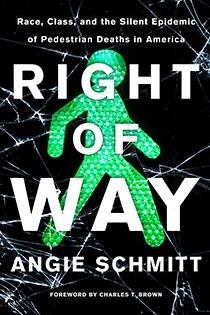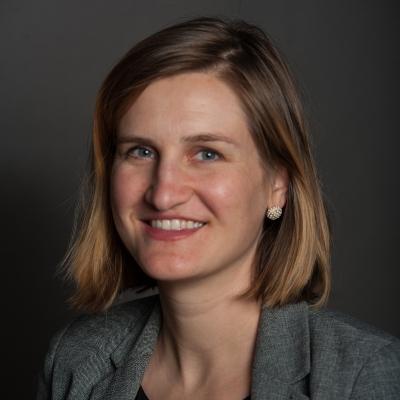Thursday September 24th, 2020 – 1:15 to 2:45 PM EDT
In the last ten years, there has been a 50 percent increase in pedestrian deaths. In 2018 alone more than 6,000 people were killed while walking in America. Yet, despite the increase in deaths, the tragedy of traffic violence has barely registered with the media and wider culture.

Disproportionately, the victims are immigrants, the poor, and people of color. They have largely been blamed and forgotten. The media barely covers these tragedies as the victims often live in low-income neighborhoods. What appears at first to be “accidental”, under greater scrutiny, reveals itself to be predictable, stark geographic patterns that tell a story about systemic inequality.
Watch SSF, Island Press, and sustainable transportation expert and author of “Right of Way“, Angie Schmitt, on September 24th examine this important issue.
PANELISTS
Angie Schmitt

Author, Right of Way Angie Schmitt is one of the country’s best-known writers and experts on the topic of sustainable transportation. She was the long-time national editor at Streetsblog and her writing has appeared in the New York Times, The Atlantic, Bicycling, GOOD, Landscape Architecture Magazine, and a number of other publications. She lives in Cleveland with her husband and two children.

Veronica O. Davis, Co-Founder & Principal Planning Manager of Nspiregreen, an urban planning and environmental consulting firm in DC. A registered Professional Engineer specializing in transportation, Veronica uses her knowledge to spark progressive social change in the community.

Jorge Cáñez, Researcher & Transporation Consultant, UCLA , Jorge uses tactical-urbanism interventions including spray painting new sidewalks and is well known in Mexico for Peatónito (“little pedestrian”), his traffic superhero persona. He is currently in the Department of Urban Planning at UCLA.

Anna Zivarts Program Director, Rooted in Rights, Disability Rights, Washington. Low-vision mom who believes in organizing and the power of stories to change narratives around disability, labor, and mobility. Working to build transportation and mobility systems that are accessible, equitable, and address our climate change and public health crises.
